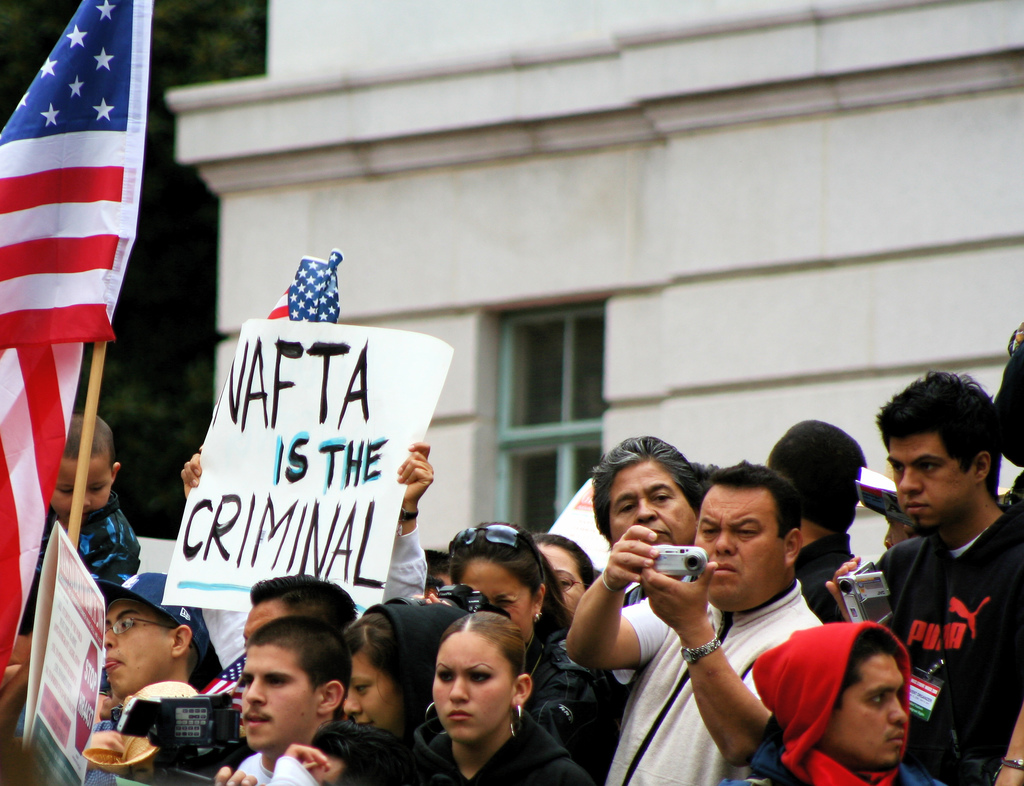Before that, there was little information about any progress in the negotiations between the US, Canada and Mexico, and this applies to each of the parties. Some of the business groups have already begun to worry about the agenda of US President Donald Trump.
As the Director General of the US Chamber of Commerce Ted Donahue said on Tuesday during his address in Mexico City; now there are proposals that can save the whole deal.
The American President's administration said nothing particular in response to Donahue's remark, but has already criticized the Chamber's similar comment on the NAFTA negotiations last week.
"The president made it apparent that NAFTA is a catastrophe for many citizens of the US, and the achievement of its goals requires significant changes, which will undoubtedly be resisted by deep-seated trade associations and lobbyists in Washington," said US Trade Representative Emily Davis.
There is almost no time to reach an agreement: leaders of Mexico have warned earlier that the talks should end early next year, well before the country's presidential election campaign begins in July. They say that it will be politically difficult to ratify a new trade deal already by the spring.
US leaders admit that success in negotiations needs to be achieved very soon.
At the same time, however, some of the demands of the American side fell under a flurry of criticism.
The chief trade negotiator of Donald Trump’s administration is planing to propose significant changes to NAFTA, so that car factories are returned from Mexico to the United States.
The document contains a requirement that the cars should have some parts produced in the US in order to claim a reduction in the tariffs for their supply. Such a requirement can change the basic principle of the 23-year regional trade pact and further increase the hostility between the negotiating parties.
Currently, cars can cross the border of the continent duty-free, if they have a certain proportion of parts produced in the territory of the NAFTA member countries. This corresponds to the original purpose of the agreement, according to which countries intended to create an integrated continental economy.
source: money.cnn.com
As the Director General of the US Chamber of Commerce Ted Donahue said on Tuesday during his address in Mexico City; now there are proposals that can save the whole deal.
The American President's administration said nothing particular in response to Donahue's remark, but has already criticized the Chamber's similar comment on the NAFTA negotiations last week.
"The president made it apparent that NAFTA is a catastrophe for many citizens of the US, and the achievement of its goals requires significant changes, which will undoubtedly be resisted by deep-seated trade associations and lobbyists in Washington," said US Trade Representative Emily Davis.
There is almost no time to reach an agreement: leaders of Mexico have warned earlier that the talks should end early next year, well before the country's presidential election campaign begins in July. They say that it will be politically difficult to ratify a new trade deal already by the spring.
US leaders admit that success in negotiations needs to be achieved very soon.
At the same time, however, some of the demands of the American side fell under a flurry of criticism.
The chief trade negotiator of Donald Trump’s administration is planing to propose significant changes to NAFTA, so that car factories are returned from Mexico to the United States.
The document contains a requirement that the cars should have some parts produced in the US in order to claim a reduction in the tariffs for their supply. Such a requirement can change the basic principle of the 23-year regional trade pact and further increase the hostility between the negotiating parties.
Currently, cars can cross the border of the continent duty-free, if they have a certain proportion of parts produced in the territory of the NAFTA member countries. This corresponds to the original purpose of the agreement, according to which countries intended to create an integrated continental economy.
source: money.cnn.com





